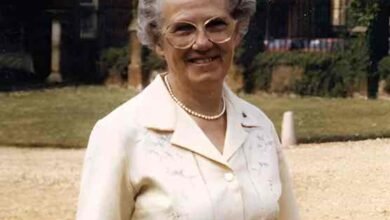Emyr Wile: A Pioneer in Medical Law, Ethics, and Informed Consent

Emyr Wile is a distinguished British academic and researcher whose work in the field of medical law and ethics has earned widespread recognition. As a lecturer in law at Swansea University, his contributions extend far beyond the classroom — they touch on some of the most vital issues at the intersection of healthcare, legal responsibility, and human rights. His research explores how patients and medical professionals navigate the complex terrain of informed consent, clinical negligence, and ethical medical practice. With a focus on antenatal and trisomy screening, Emyr Wile’s work has shed new light on how communication, empathy, and legal structures shape medical decisions that impact countless lives.
Early Life and Academic Background
Dr Emyr Wile’s academic career began with a deep fascination for law, ethics, and human welfare. As a Welsh scholar fluent in his native language, he embodies the intellectual spirit of modern Welsh academia — one that values both empirical research and moral reflection. His early studies in law introduced him to questions surrounding duty of care, negligence, and consent — topics that would later become central to his professional work.
After completing his initial legal training, Wile pursued postgraduate research that led him toward the medical law specialisation. His doctoral thesis, completed at Swansea University, focused on the intricate dynamics of informed consent in antenatal screening. This was not merely an academic pursuit but a mission to bridge the gap between healthcare practice and the law that governs it.
By 2023, he had earned his PhD, a milestone that reflected years of rigorous research, extensive fieldwork, and meaningful engagement with parents, medical professionals, and policy experts.
Role at Swansea University
Emyr Wile currently serves as a Lecturer in Law at Swansea University’s Hillary Rodham Clinton School of Law. In this capacity, he plays a vital role in shaping the next generation of legal minds. His courses include subjects like Medical Law and Tort Law, both of which are foundational to understanding the moral and legal frameworks that govern medical practice.
As a bilingual educator, he teaches in both English and Welsh, ensuring that his students gain a comprehensive and inclusive understanding of the law. His ability to blend theory with real-world case studies has made his lectures highly engaging and impactful. Many of his students praise his capacity to explain complex medical-legal issues in a way that is both compassionate and intellectually stimulating.
Research Focus and Core Themes
The central pillar of Emyr Wile’s research is informed consent — a principle that lies at the heart of medical ethics and legal accountability. Informed consent refers to the process by which patients are given adequate information about medical procedures so that they can make voluntary and well-informed decisions regarding their care.
Dr Wile’s research challenges the simplistic notion of consent as a one-time signature on a form. Instead, he portrays it as a dynamic, evolving dialogue between patient and professional — one that requires empathy, transparency, and shared understanding.
His specific focus on trisomy screening — a prenatal test used to detect conditions such as Down’s Syndrome, Edwards’ Syndrome, and Patau’s Syndrome — brings to light the emotional, ethical, and social dimensions of healthcare decision-making. Through interviews and empirical data, Wile uncovers how parents often struggle to understand the implications of such tests, and how healthcare professionals face their own challenges in communicating sensitive information effectively.
His approach combines legal theory with empirical research, offering a rare blend of philosophical depth and practical relevance.
Doctoral Thesis and Academic Contributions
One of Wile’s most significant academic contributions is his doctoral thesis titled “Informed Consent and Trisomy Screening: Delineating Parent and Professional Interests.” This work dissects the delicate balance between professional duty and parental autonomy.
In the study, Wile argues that the concept of informed consent must be reimagined. Rather than being a mere procedural requirement, it should be viewed as a collaborative process rooted in trust and mutual respect. His findings indicate that medical practitioners often underestimate how much information expectant parents need, or how the framing of that information can influence decisions.
He also analyses landmark legal cases, including Montgomery v Lanarkshire Health Board (2015), which reshaped the understanding of informed consent in UK law. By contextualising these cases within real-world healthcare experiences, Wile demonstrates how law and medicine must work hand in hand to uphold patient rights and professional integrity.
His research is not limited to theoretical critique — it also offers policy recommendations, encouraging healthcare systems to improve the clarity, consistency, and emotional sensitivity of patient communication.
Published Works and Articles
Emyr Wile has published several works that expand upon his doctoral findings. Among them, one notable publication is “Understanding Mordel: Obtaining Informed Consent for Trisomy Screening”, co-authored with A. Einion and published in the British Journal of Midwifery in 2021.
In this paper, Wile examines the Mordel case, in which failure to obtain valid informed consent led to significant legal and ethical debate. His analysis highlights how systemic issues — such as time pressures and assumptions about patient knowledge — can undermine genuine consent.
Through his writing, he has become a key voice in shaping discussions on patient autonomy, clinical negligence, and the evolving nature of medical responsibility. His works are increasingly cited in both legal and medical circles, demonstrating their interdisciplinary significance.
Awards and Recognition
In 2022, Dr Emyr Wile received the Outstanding Contribution to Public Engagement Award from Swansea University’s Postgraduate Research Awards. This accolade recognised his efforts to connect academic research with broader society — particularly with parents, healthcare practitioners, and advocacy groups concerned with trisomy screening and informed consent.
This achievement highlights one of Wile’s defining traits: his commitment to making research accessible, relevant, and actionable. He actively engages with NHS professionals, midwives, and patient advocacy organisations to ensure that his findings inform not only academic debates but also healthcare policy and daily clinical practice.
His recognition at Swansea University is a testament to his role as both a scholar and a public educator.
Teaching Philosophy and Student Engagement
Beyond research, Emyr Wile is a devoted teacher who integrates compassion into his academic approach. His students describe his teaching style as clear, patient, and deeply human. He encourages critical thinking by inviting learners to examine the ethical dimensions of legal issues rather than memorising rigid doctrines.
His courses on Medical Law and Tort Law help students understand the complexities of patient-doctor relationships, liability, and moral duty. He uses contemporary case studies to illustrate how laws evolve alongside societal expectations. By blending law, ethics, and real-world implications, Wile prepares his students to become thoughtful, socially responsible legal professionals.
He also promotes inclusivity in education, offering bilingual support and encouraging students from diverse backgrounds to engage in debates about healthcare and human rights.
Socio-Legal Impact and Policy Relevance
Emyr Wile’s research is not confined to academic journals. It plays a vital role in informing healthcare policies, legal frameworks, and professional training. His empirical insights help policymakers understand where communication breaks down in healthcare settings and how legal reforms could better protect both patients and practitioners.
His work advocates for a patient-centred healthcare system, one that recognises emotional as well as intellectual consent. He argues that informed consent must involve understanding, compassion, and genuine choice — especially in sensitive medical areas like antenatal care.
By engaging with healthcare bodies and ethics committees, Wile has become a trusted advisor on issues of consent and negligence. His influence extends to discussions about medical training, ethical guidelines, and patient information protocols.
Legacy and Future Prospects
Though still early in his academic career, Dr Emyr Wile is poised to become one of the most influential voices in UK medical law. His combination of legal expertise, empirical research, and ethical insight positions him as a thought leader for years to come.
Future projects are expected to expand his research into new areas, such as patient data rights, bioethics in emerging medical technologies, and the digital transformation of healthcare consent processes. With ongoing collaborations and mentorship roles, his contributions will continue to shape academic, professional, and policy landscapes across Britain and beyond.
His legacy will likely be defined by a single but powerful idea — that law and medicine must serve humanity together, ensuring that every patient’s choice is respected, informed, and valued.
Conclusion
Emyr Wile stands as a symbol of intellectual integrity and human empathy in the realm of medical law. His dedication to understanding informed consent, clinical ethics, and legal responsibility reflects a rare combination of academic excellence and compassion.
Through his teaching, research, and public engagement, Wile has inspired meaningful dialogue between law and healthcare. He has shown that informed consent is not merely a formality, but a moral and emotional cornerstone of modern medicine. His work continues to guide professionals and policymakers toward a future where medical care is both ethically grounded and legally sound.



